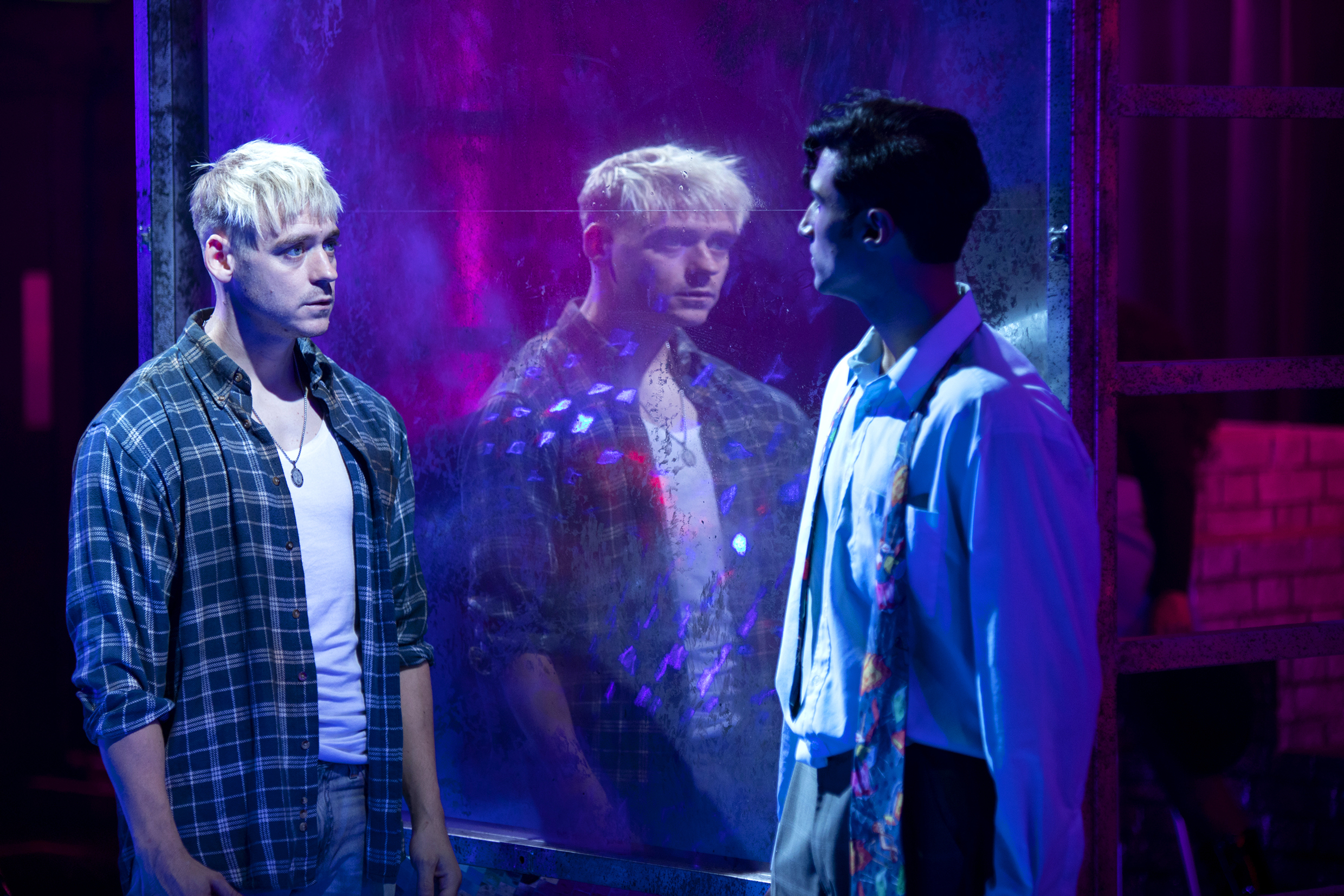Blog: Professor Claire Monk on the impact of My Beautiful Laundrette

'In this damn country which we hate and love'
‘I believe primarily that dramatists are story tellers. … Good writing, born of reality, is the highest form of consciousness. And it is in itself a revolt, it is criticism, protest, rebellion against kitsch, against all forms of domination, against ignorance and prejudice.’
– Hanif Kureishi, ‘The Writer’s Theatre’ (undated)
Commissioned in the early years of Channel 4 television by C4’s founding chief executive Jeremy Isaacs and his ‘head of fiction’ David Rose – the founding father of Film on Four, which later became Film4 – and shot on location in six weeks on 16mm film by the Leicester-born director Stephen Frears for £650,000, My Beautiful Laundrette was not conceived as a movie for cinema release. Britain’s new fourth TV channel had launched in November 1982 with a radical vision (barely evident today) which included rethinking the relationship between TV and film in the UK. The initial plan was to offer filmmakers the chance to make features which would be screened on TV, possibly preceded by a short, promotional, cinema release. On a budget of just £6 million per year, in the first ten years Rose commissioned more than 130 completed feature-length films; half achieved a cinema release. Of these, Laundrette was the first big hit which changed the plan.
My Beautiful Laundrette is and can be credited with many things: transforming C4 into the new key force in 1980s to 1990s British film production, making Daniel Day Lewis (who played Johnny) a star, launching the British independent production company Working Title (today part-owned by Universal Studios), as a bold breakthrough in gay and British Asian representation, and as a step-change in the style, tone and ambitions of British film. As film scholar Christine Geraghty (writing in 2004) points out, Laundrette is essentially a hybrid: of television and film, realism and fantasy, ‘minority’ themes and mainstream appeal. In line with this, the reinvention of one of the defining, most praised and debated, British films of the 1980s Thatcher decade as theatre is wholly fitting. And, in fact, the theatre is where Hanif Kureishi – born in 1954 in middle-class South London suburbia to a British mother and a Pakistani father – started out as a young writer. By the time C4 approached Kureishi to commission the script for his début full-length ‘television film’, he was already the author of several produced and published plays and an on-the-radar talent. In the late 1970s to early 1980s, when few Asian or Afro-Caribbean writers were writing for (or able to earn a living in) British theatre, Kureishi was nurtured at London’s Royal Court Theatre – legendary for its cultivation of new writers and commitment to contemporary subjects – during Max Stafford-Clark’s time as Artistic Director. In 1981, Kureishi won the George Devine Award for Most Promising Playwright; in 1982 he was appointed Royal Court Writer in Residence.
Kureishi’s plays Outskirts and Borderline, both first staged in 1981, each explore themes pertinent to the later development of Laundrette. In Outskirts, two former schoolfriends grow apart in an environment of bleak prospects, racism and stagnant family life. Borderline, developed via a workshop process and research in the South Asian community in Southall, West London (later the setting of Gurinder Chadha’s 2002 hit film Bend It Like Beckham), centres on the experiences of a young Pakistani woman and the pressures on young British Asians. Rita Wolf, who played her, would memorably revisit these issues four years later as Omar’s bored, frustrated cousin Tania in Laundrette. The same period saw the emergence of politicised black and Asian low-budget independent filmmaking (and collectives) in the UK, some of which similarly explored and expressed the complexities and dilemmas of identity when living ‘between’ two cultures.
Laundrette provocatively stirred same-sex romance and male–male, cross-cultural and (in Tania’s case) upfront female desire into this mix. However, its groundbreaking iconoclasm, and importance for British cinema, owe as much to its rejection of social realism – especially evident in the mannered dialogue and larger-than-life performances – and its ironic, unsparing stance towards its characters and subject matter. In his 1986 Introduction to the published screenplay, Kureishi wrote: ‘The film was to be an amusement, despite its references to racism, unemployment and Thatcherism. Irony is the modern mode, a way of commenting on bleakness and cruelty without falling into dourness and didacticism.’
The freshness of this mode struck an unexpectedly wide chord: Laundrette was a near-universal success with critics and both mainstream and gay audiences, in the UK and beyond. Where its representations of its Pakistani characters (centrally, Omar’s wealthy, adulterous Thatcherite businessman uncle Nasser – a role written especially for the veteran Indian actor Saeed Jaffrey – and the drug-trafficking Salim) attracted criticisms from the British Asian community and some of its filmmakers, these most often arose from expectations of (or demands for) precisely the mundane social realism and untainted ‘positive images’ that Laundrette’s creators wanted to break away from. More unanswerably, Omar and Johnny’s romantic and sexual partnership earned the film a boycott from UK-based protestors who declared that ‘there are no homosexuals in Pakistan’. For the late, great, black British cultural studies scholar Stuart Hall (speaking in 1988) Laundrette was ‘one of the most riveting and important films produced by a black writer in recent years, and precisely for the reason that made it so controversial: its refusal to represent the black experience in Britain as monolithic, self-contained [and] sexually stabilized.’ For new generations of twenty-first century audiences worldwide today, the film is celebrated and loved more straightforwardly as a landmark intersectional LGBT film. For me, my first encounter with Laundrette back in the 1980s was a revelation for showing – and satirising – a confident, well-off Pakistani–British business class not previously seen on our screens.
By Claire Monk
Professor of Film and Film Culture, De Montfort University